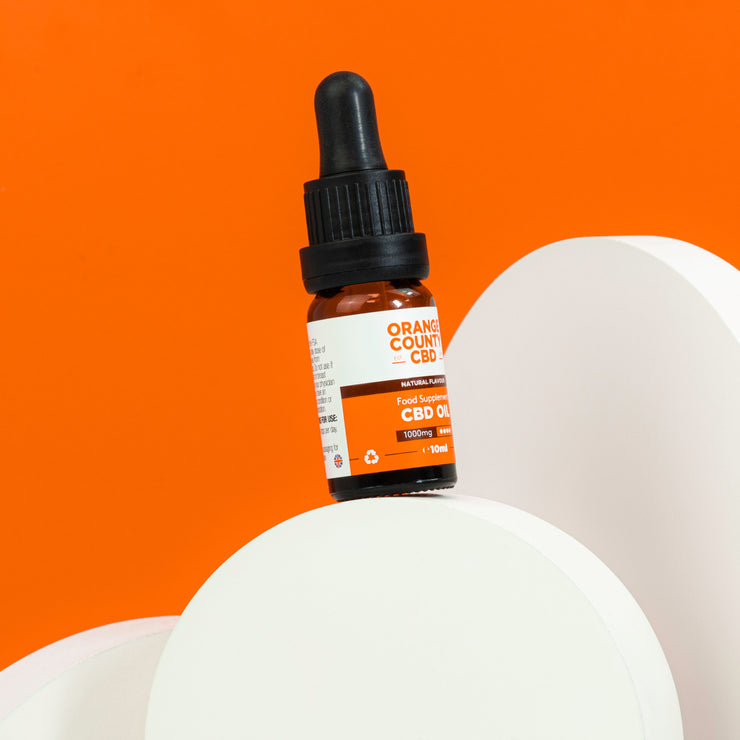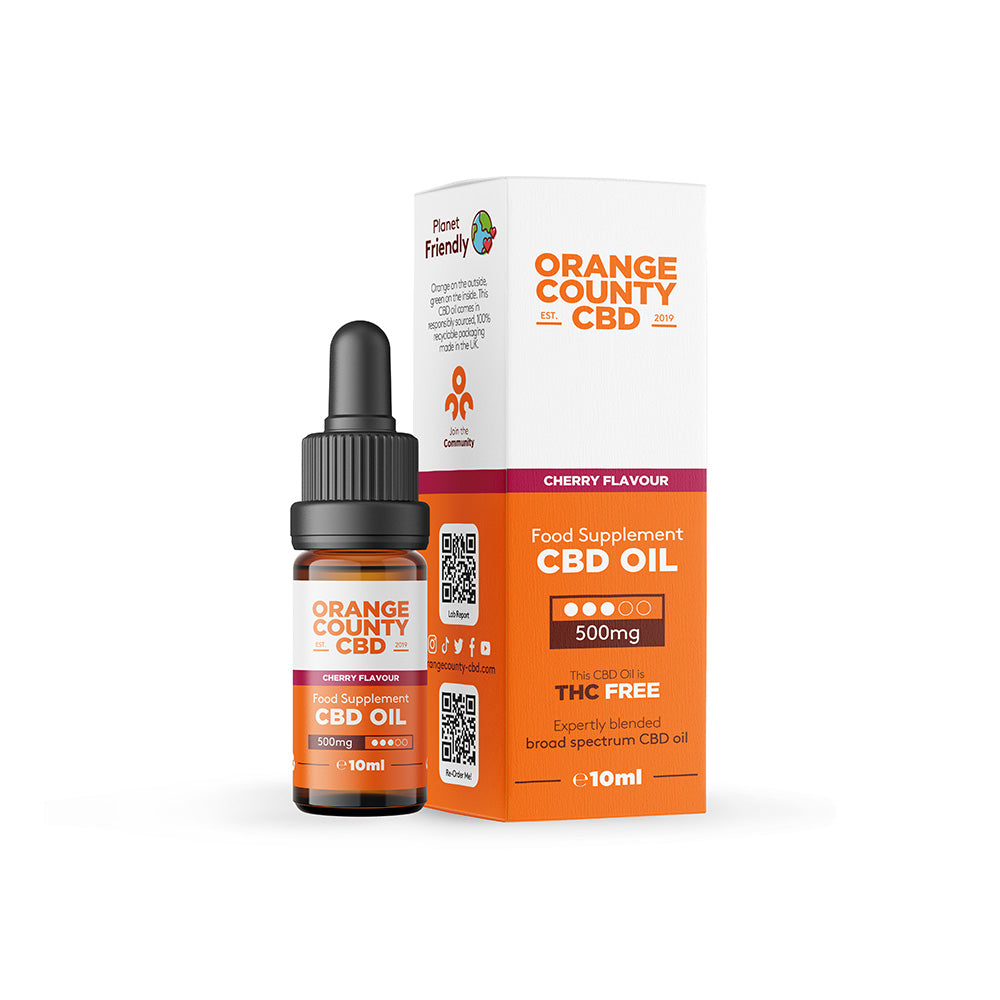Difference Between CBD Oil and Hemp Oil: What You Need to Know

We often get asked about the difference between CBD oil and hemp oil. Both come from the versatile cannabis plant but serve different purposes and contain distinct compounds. Whether you're curious for wellness, skincare, or nutritional benefits, it’s important to understand what sets these oils apart to make informed choices that suit your lifestyle and health needs.
What is Hemp Oil?
Hemp oil, also known as hemp seed oil, is extracted by cold-pressing the seeds of the Cannabis sativa plant. Unlike CBD oil, hemp oil contains almost no cannabidiol (CBD) or tetrahydrocannabinol (THC), the compounds known for their therapeutic and psychoactive effects. Instead, hemp oil is prized for its exceptional nutritional profile, rich in omega-3 and omega-6 fatty acids, vitamin E, and essential amino acids. [1]
Typically, you will find hemp oil used in cooking, skin and hair care products due to its moisturising and nourishing properties. It carries no psychoactive effects and is widely regarded as safe for consumption and topical application. Hemp oil can help support cardiovascular health and skin hydration thanks to its balanced essential fatty acids, but it won’t offer the specific benefits attributed to CBD. [1]
What is CBD Oil?
CBD oil is derived primarily from the flowers, leaves, and stalks of the hemp plant where cannabidiol is abundant. This oil contains a concentrated amount of CBD and trace amounts of THC (usually below the 0.3% legal limit in the UK) but does not produce any intoxicating effects.
CBD oil interacts with your body's endocannabinoid system, which plays a crucial role in regulating pain, mood, anxiety, and inflammation. People often turn to CBD oil to help with conditions such as chronic pain, anxiety, sleeplessness, and inflammation. [2] The oil is available in various forms including full-spectrum, broad-spectrum, and CBD isolate, which differ in their content of cannabinoids and other plant compounds.

How Are Hemp Oil and CBD Oil Made Differently?
Hemp seed oil is produced by cold-pressing hemp seeds, a straightforward process similar to making olive oil. This method retains the nutritional components of the seed but excludes cannabinoids entirely since seeds contain negligible amounts.
CBD oil manufacturing is more complex. CBD is extracted using advanced techniques such as CO2 or ethanol extraction from the flowers and leaves, where cannabinoids concentrate. This extract is purified and blended with carrier oils like hemp seed oil or MCT oil to improve absorption and usability.

Benefits and Uses: Hemp Oil vs CBD Oil
Hemp oil benefits largely stem from its nutritional content. Its rich omega fatty acids make it a heart-healthy oil perfect for culinary and cosmetic applications. It's frequently used to soothe skin conditions like dryness or eczema and is a wholesome dietary supplement. [1]
CBD oil offers more targeted wellness benefits, including anti-inflammatory effects, anxiety reduction, pain management, and support for better sleep. It engages with specific receptors in the human body, influencing the nervous and immune systems. However, results can vary individually, so approaching CBD use with realistic expectations and medical advice is important. [2]
| 🧾 Feature | 🌿 CBD Oil | 🌰 Hemp Oil (Hemp Seed Oil) |
|---|---|---|
| 🌱 Source | From hemp plant’s flowers, leaves & stalks | From cold-pressed hemp seeds |
| 🧪 CBD Content | High – main active compound | None or negligible |
| 🚫 THC Content | Trace (≤ 0.2% in UK, non-intoxicating) | None |
| 🧘 Primary Use | Wellness: pain, anxiety, sleep, inflammation | Nutrition & skincare |
| ⚖️ Legal Status (UK) | Legal if compliant with THC limits | Fully legal (no cannabinoids) |
| 🛠️ Extraction Method | CO₂ or ethanol extraction | Cold pressing |
| 💊 Common Formats | Oils, tinctures, capsules, gummies, topicals | Cooking oils, lotions, balms, hair care |
| 💚 Health Benefits | May aid relaxation, pain relief, mood & sleep [2] | Rich in omegas; supports skin & heart health [1] |
| 🚫 Psychoactive Effects | None | None |
Is Hemp Oil or CBD Oil Legal and Safe in the UK?
Both hemp oil and CBD oil made from industrial hemp with less than 0.3% THC are legal to buy and use across the UK. Our entire Orange County CBD range is fully compliant with UK laws, and every batch undergoes independent third-party testing to ensure safety, consistency, and labelling transparency.
While hemp oil is generally safe with minimal side effects, CBD oil can interact with other medications and may cause mild side effects such as fatigue or digestive changes. Please consult your healthcare provider before starting any new supplement, especially if you are on medication.
How to Choose the Right Oil for You
If you want nutritional support or a quality natural oil for skincare or cooking, hemp oil is an excellent choice. Look for cold-pressed, organic hemp seed oils for the best results.
For those looking to explore the potential wellness benefits of cannabis compounds like easing anxiety, reducing pain, or supporting relaxation, CBD oil is the preferred option. Choose broad-spectrum or full-spectrum oils from reputable brands like Orange County CBD to ensure potency, purity, and safety.
At Orange County CBD, we pride ourselves on producing UK-made, lab-tested CBD products sourced from the USA.
Explore our range of CBD oils and CBD gummies designed to fit seamlessly in your daily routine, supporting your quest for balance, calmness, and wellness.
Research
[1] Hemp-derived CBD used in food and food supplements - https://www.ncbi.nlm.nih.gov/pmc/articles/PMC10745805/
[2] Quality traits of “cannabidiol oils”: Cannabinoids content, terpene fingerprint and oxidation stability of European commercially available preparations. https://www.ncbi.nlm.nih.gov/pmc/articles/PMC6100014/

